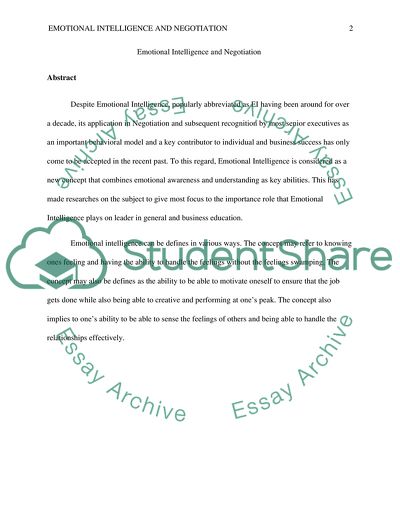Cite this document
(Emotional Intelligence and Negotiation Essay Example | Topics and Well Written Essays - 2250 words, n.d.)
Emotional Intelligence and Negotiation Essay Example | Topics and Well Written Essays - 2250 words. https://studentshare.org/business/1822491-emotional-intelligence-and-negotiation
Emotional Intelligence and Negotiation Essay Example | Topics and Well Written Essays - 2250 words. https://studentshare.org/business/1822491-emotional-intelligence-and-negotiation
(Emotional Intelligence and Negotiation Essay Example | Topics and Well Written Essays - 2250 Words)
Emotional Intelligence and Negotiation Essay Example | Topics and Well Written Essays - 2250 Words. https://studentshare.org/business/1822491-emotional-intelligence-and-negotiation.
Emotional Intelligence and Negotiation Essay Example | Topics and Well Written Essays - 2250 Words. https://studentshare.org/business/1822491-emotional-intelligence-and-negotiation.
“Emotional Intelligence and Negotiation Essay Example | Topics and Well Written Essays - 2250 Words”. https://studentshare.org/business/1822491-emotional-intelligence-and-negotiation.


